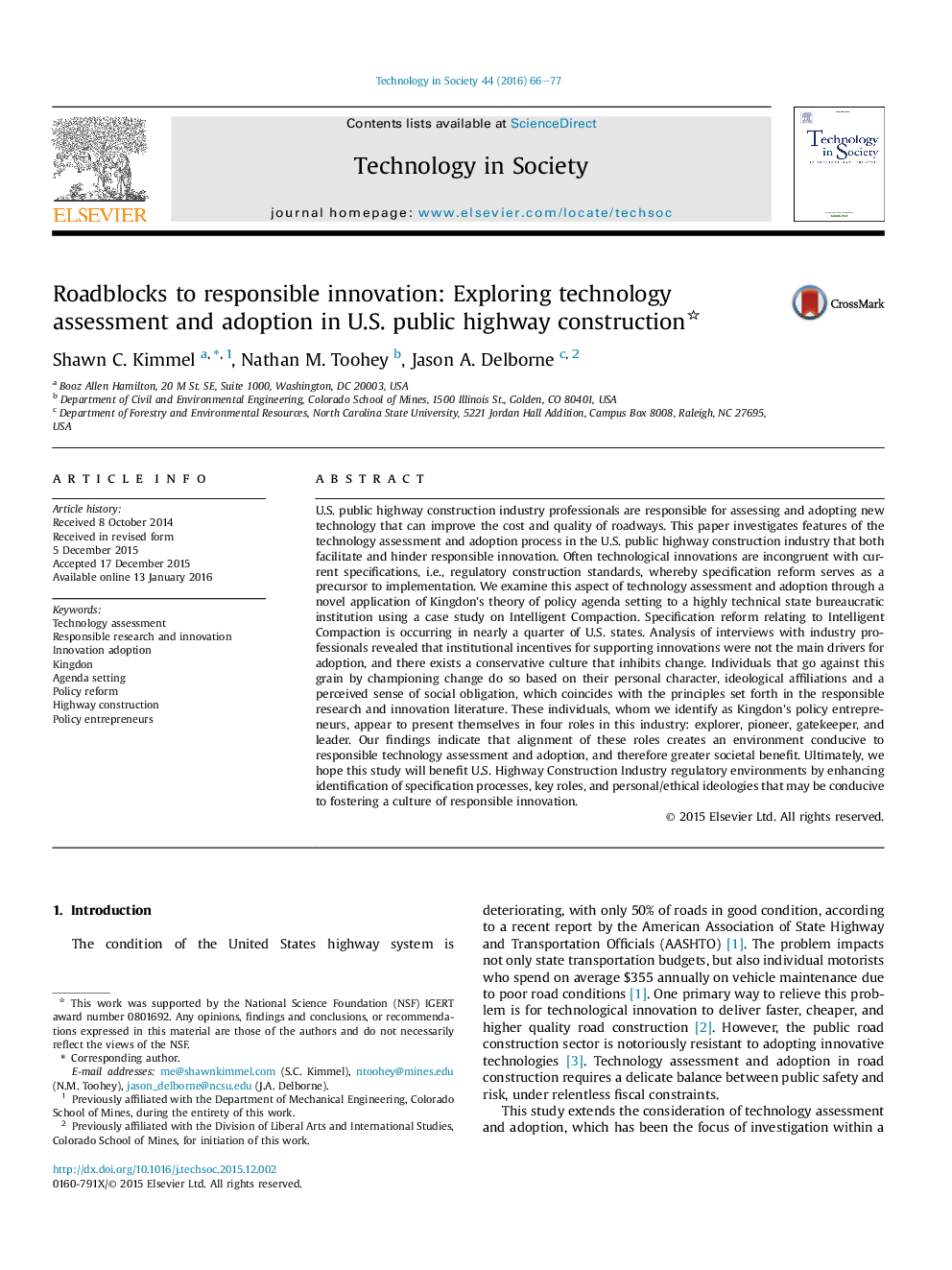| Article ID | Journal | Published Year | Pages | File Type |
|---|---|---|---|---|
| 375113 | Technology in Society | 2016 | 12 Pages |
•Adoption depends on innovation champions fulfilling certain roles within DOTs.•Champions tend to take on large risks and be entirely intrinsically motivated.•Field demonstrations create a tight coupling between problem and policy streams.•Limitations to Kingdon's framework are identified and extensions are proposed.
U.S. public highway construction industry professionals are responsible for assessing and adopting new technology that can improve the cost and quality of roadways. This paper investigates features of the technology assessment and adoption process in the U.S. public highway construction industry that both facilitate and hinder responsible innovation. Often technological innovations are incongruent with current specifications, i.e., regulatory construction standards, whereby specification reform serves as a precursor to implementation. We examine this aspect of technology assessment and adoption through a novel application of Kingdon's theory of policy agenda setting to a highly technical state bureaucratic institution using a case study on Intelligent Compaction. Specification reform relating to Intelligent Compaction is occurring in nearly a quarter of U.S. states. Analysis of interviews with industry professionals revealed that institutional incentives for supporting innovations were not the main drivers for adoption, and there exists a conservative culture that inhibits change. Individuals that go against this grain by championing change do so based on their personal character, ideological affiliations and a perceived sense of social obligation, which coincides with the principles set forth in the responsible research and innovation literature. These individuals, whom we identify as Kingdon's policy entrepreneurs, appear to present themselves in four roles in this industry: explorer, pioneer, gatekeeper, and leader. Our findings indicate that alignment of these roles creates an environment conducive to responsible technology assessment and adoption, and therefore greater societal benefit. Ultimately, we hope this study will benefit U.S. Highway Construction Industry regulatory environments by enhancing identification of specification processes, key roles, and personal/ethical ideologies that may be conducive to fostering a culture of responsible innovation.
